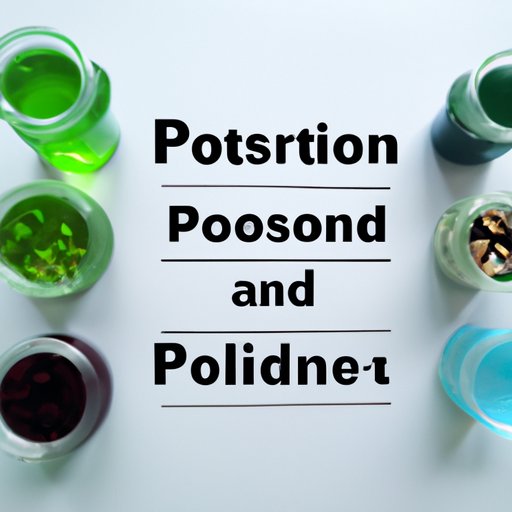Introduction
Food poisoning is a common illness that many people experience at some point in their lives. It typically occurs when you consume food or drink contaminated with bacteria, viruses, or parasites. Symptoms may include nausea, vomiting, abdominal cramps, diarrhea, and fever. Fortunately, mild cases of food poisoning can be treated at home, and this article aims to provide you with natural remedies and tips to help alleviate symptoms and avoid dehydration.
Home Remedies
Using home remedies is an effective way to treat mild cases of food poisoning. They are cost-effective, easily accessible, and can be helpful in reducing symptoms such as nausea and diarrhea. Popular household ingredients such as ginger, peppermint, and apple cider vinegar are known for their effective anti-inflammatory properties and can be used to provide relief.
To use ginger, either peel and take a small slice of fresh ginger or mix a teaspoon of ginger powder with hot water and a teaspoon of honey. This concoction can be sipped several times a day. Peppermint can also be used to ease digestive symptoms by making peppermint tea or inhaling its essential oil. Apple cider vinegar can be consumed by diluting a tablespoon of it in a glass of water or added to salad dressings or marinades.
Hydration
Dehydration is a risk when experiencing food poisoning, primarily due to the excessive loss of fluids through vomiting and diarrhea. To avoid dehydration, it is crucial to consume clear fluids, including coconut water, broth, and herbal tea throughout the day. An Oral Rehydration Solution (ORS) can also be made at home by mixing 1 liter of boiled water with 6 teaspoons of sugar and half a teaspoon of salt. It is essential to limit caffeine and alcohol as they can cause dehydration.
Probiotics
Replenishing good bacteria in the gut is an essential factor in recovery after food poisoning. Foods rich in probiotics, such as kefir, kombucha, and yogurt, can help maintain good digestive health. Probiotics aid digestion, boost the immune system, and aid faster healing. Consuming a cup of yogurt with active cultures or taking a probiotic supplement can help promote good gut bacteria.
BRAT Diet
The BRAT diet, including Bananas, Rice, Applesauce, and Toast, is an excellent diet to help ease digestion after food poisoning. These foods are easy to digest and provide the necessary nutrients during this period. Bananas provide potassium and electrolytes, whereas rice and toast are low in fiber and easy to digest. Unsweetened applesauce also provides nutrients and can help alleviate nausea.
Medication
Over-the-counter (OTC) medications can help relieve discomfort during food poisoning. These medications, which contain bismuth subsalicylate and Loperamide, can help reduce diarrhea and nausea. Pepto-Bismol and Imodium AD are examples of OTC medications that may help alleviate symptoms. However, it is essential to speak to a healthcare provider before taking any medication, especially those with medical conditions or who may be pregnant.
Prevention Tips
Food safety and good personal hygiene are essential in preventing food poisoning. Wash your hands before and after eating and cooking and use separate cutting boards for meat and vegetables. Ensure that food is stored at proper temperatures and promptly refrigerated. Understand food labels and cooking temperatures to ensure that food is fully cooked and safe to consume. Practicing these simple tips can go a long way in preventing food poisoning.
Conclusion
In conclusion, food poisoning can be a distressing experience, but it can be treated at home using natural remedies and tips. Using home remedies such as ginger, peppermint, and apple cider vinegar, staying hydrated with clear fluids, consuming probiotics, following the BRAT diet, and taking OTC medication can help alleviate symptoms and promote faster recovery. By practicing good personal hygiene and food safety measures, you can prevent future episodes of food poisoning. Remember to seek medical attention if symptoms persist.
